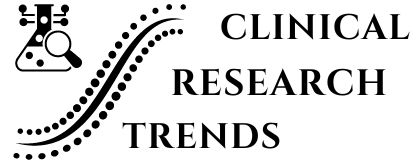Implementing Good Clinical Practice (GCP) in Clinical Research
Clinical research plays a pivotal role in the development of new medical treatments and therapies, impacting public health and the advancement of medical science. To ensure the ethical and scientific quality of clinical trials, Good Clinical Practice (GCP) serves as a fundamental framework. GCP encompasses a set of guidelines that safeguard the rights, safety, and well-being of trial participants, while also ensuring the credibility and accuracy of data obtained from these studies. This comprehensive exploration delves into the various dimensions of GCP, including its historical evolution, key principles, regulatory frameworks, practical implementation, and the challenges encountered in maintaining compliance.
Definition of Good Clinical Practice (GCP)
Good Clinical Practice (GCP) is defined as an international ethical and scientific quality standard for the design, conduct, recording, and reporting of clinical trials involving human participants. It serves as a guideline to ensure that clinical trials are conducted ethically, with respect for the rights and safety of participants, and that the data generated are credible and accurate. GCP covers all aspects of a clinical trial, from planning and protocol development to data management and reporting, emphasizing the importance of transparency, accountability, and integrity in clinical research.
Historical Background and Evolution of GCP
The origins of GCP can be traced back to the mid-20th century, when ethical considerations in medical research gained prominence. The Nuremberg Code, established in 1947 in response to unethical human experimentation during World War II, laid the foundational principles of informed consent and voluntary participation. This was followed by the Declaration of Helsinki in 1964, which provided more detailed ethical guidelines for medical research involving human subjects, emphasizing the importance of risk assessment and the welfare of participants.
The modern concept of GCP was significantly shaped by the International Conference on Harmonisation (ICH), which was established in 1990. The ICH brought together regulatory authorities and industry representatives from Europe, Japan, and the United States to harmonize technical requirements for pharmaceutical products. The resulting ICH GCP guidelines, first published in 1996, provided a unified global standard for clinical trials. These guidelines have since been adopted by regulatory agencies worldwide, becoming the cornerstone of ethical and scientific conduct in clinical research.
Importance of GCP in Clinical Research
The importance of GCP in clinical research cannot be overstated. Firstly, it ensures the protection of human subjects by mandating ethical practices, such as obtaining informed consent, ensuring confidentiality, and providing the right to withdraw from the study at any time. These measures safeguard participants from potential harm and exploitation, maintaining the dignity and respect they deserve.
Secondly, GCP promotes the credibility and reliability of clinical trial data. By adhering to standardized protocols and procedures, GCP ensures that data are collected consistently and accurately, minimizing the risk of bias and errors. This is crucial for the validation of new treatments and therapies, as reliable data are essential for regulatory approval and public trust.
Thirdly, GCP fosters public confidence in clinical research. In an era where public scrutiny of medical practices is high, adherence to GCP demonstrates a commitment to ethical conduct and scientific rigor. This transparency and accountability encourage public participation in clinical trials and support for medical research, which are vital for the development of new and effective treatments.
Key Principles of GCP
Ethical Considerations and Protection of Trial Subjects
The cornerstone of GCP is the ethical treatment of trial subjects. This principle encompasses several critical aspects:
- Informed Consent: Participants must be fully informed about the nature of the trial, including its purpose, procedures, potential risks, and benefits. They must voluntarily agree to participate without any coercion. The informed consent process is ongoing, requiring that participants are kept informed of any new information that may affect their decision to continue in the study.
- Risk-Benefit Assessment: Before a trial begins, a thorough assessment of potential risks and benefits is conducted to ensure that the benefits justify any risks involved. This assessment is reviewed and approved by an Institutional Review Board (IRB) or Ethics Committee (EC) to safeguard participants' welfare.
- Confidentiality and Privacy: GCP mandates the protection of participants' personal information. Data collected during the trial must be kept confidential and secure, with access restricted to authorized personnel only. Participants must be informed about how their data will be used and protected.
- Right to Withdraw: Participants have the right to withdraw from the study at any time, without penalty or loss of benefits to which they are otherwise entitled. This right must be clearly communicated to participants and respected throughout the study.
Quality Assurance and Data Integrity
Quality assurance and data integrity are central to GCP, ensuring that the data collected during clinical trials are reliable and credible:
- Protocol Adherence: The clinical trial must be conducted according to a predefined protocol, which outlines the study's objectives, design, methodology, statistical considerations, and organization. Any deviations from the protocol must be documented and justified.
- Accurate Data Collection: Data must be collected accurately and systematically, using validated methods and tools. This includes ensuring that measurements are consistent and that any changes to data collection methods are documented.
- Monitoring and Auditing: Regular monitoring and auditing of the trial are essential to ensure compliance with GCP and the protocol. Monitoring involves checking the progress of the trial, verifying data accuracy, and ensuring that the rights and safety of participants are protected. Auditing involves a more comprehensive review of the trial's conduct and data to ensure compliance with regulatory requirements.
- Data Management and Record-Keeping: Comprehensive and accurate records of all trial-related activities must be maintained. This includes documentation of the study protocol, informed consent forms, case report forms, monitoring reports, and any correspondence with regulatory authorities. Proper data management practices are crucial for the traceability and verification of study findings.
Roles and Responsibilities of Stakeholders
GCP outlines the roles and responsibilities of various stakeholders involved in clinical research:
- Sponsors: Sponsors are responsible for funding the clinical trial and ensuring that it is conducted in compliance with GCP and regulatory requirements. They are involved in the design of the study, selection of investigators, monitoring of the trial, and reporting of results. Sponsors must also ensure that the trial is adequately resourced and that all personnel involved are properly trained.
- Investigators: Investigators are responsible for conducting the trial according to the protocol and ethical guidelines. They are tasked with recruiting participants, obtaining informed consent, conducting study procedures, and ensuring the safety and well-being of participants. Investigators must also maintain accurate records and report any adverse events or protocol deviations.
- Regulatory Authorities: Regulatory authorities are responsible for overseeing the conduct of clinical trials and ensuring compliance with GCP and national regulations. They review and approve study protocols, monitor ongoing trials, and evaluate the safety and efficacy of new treatments. Regulatory authorities also have the power to inspect study sites and review study documentation.
- Institutional Review Boards (IRBs) and Ethics Committees (ECs): IRBs and ECs are independent bodies that review and approve the ethical aspects of a clinical trial. They assess the study's risk-benefit ratio, review informed consent processes, and ensure that participants' rights and safety are protected. IRBs and ECs play a crucial role in maintaining ethical standards in clinical research.
Regulatory Frameworks
International Guidelines and Standards
The International Conference on Harmonisation (ICH) GCP guidelines provide a global standard for clinical trials, ensuring consistency and quality across different regions. The guidelines cover all aspects of clinical trial conduct, from planning and protocol development to data management and reporting. They are widely adopted by regulatory authorities worldwide, including the US Food and Drug Administration (FDA), the European Medicines Agency (EMA), and the Japanese Pharmaceuticals and Medical Devices Agency (PMDA).
The ICH GCP guidelines are supplemented by other international standards, such as the Declaration of Helsinki and the Belmont Report. These documents provide ethical principles for medical research involving human subjects, emphasizing the importance of informed consent, risk-benefit assessment, and respect for participants' autonomy.
National Regulations and Compliance Requirements
In addition to international guidelines, individual countries have their own regulatory frameworks and compliance requirements for clinical research. These regulations are often based on the ICH GCP guidelines but may include additional requirements specific to the country. For example, in the United States, clinical trials must comply with the Code of Federal Regulations (CFR), while in the European Union, the Clinical Trials Directive sets out the regulatory framework.
National regulations cover various aspects of clinical trial conduct, including study approval, informed consent, data protection, and reporting requirements. They also outline the roles and responsibilities of sponsors, investigators, and regulatory authorities. Compliance with national regulations is essential for obtaining regulatory approval and marketing authorization for new treatments.
Impact of Regulatory Frameworks on Clinical Research
Regulatory frameworks play a critical role in ensuring the safety and efficacy of new treatments and therapies. They provide a legal and ethical framework for conducting clinical research, ensuring that studies are conducted in a manner that protects participants and produces reliable data. Regulatory frameworks also promote transparency and accountability in clinical research, fostering public trust and confidence.
However, regulatory frameworks can also pose challenges for researchers, particularly in terms of compliance and the complexity of navigating different regulatory requirements in multi-national studies. Regulatory requirements can vary significantly between countries, leading to potential delays and increased costs in the conduct of clinical trials. Researchers must be familiar with the regulatory requirements of each country involved in a study and ensure that the trial complies with all applicable regulations.
Implementing GCP in Clinical Trials
Planning and Designing Trials According to GCP
The implementation of GCP begins with the careful planning and design of clinical trials. This involves developing a detailed protocol that outlines the study's objectives, design, methodology, statistical considerations, and organization. The protocol must be scientifically sound and ethically justified, with clear inclusion and exclusion criteria, and a well-defined plan for monitoring and managing risks.
The planning phase also involves obtaining the necessary approvals from regulatory authorities and ethics committees. This process includes submitting the study protocol, informed consent forms, and other relevant documentation for review and approval. Researchers must also ensure that the trial is adequately resourced and that all personnel involved are properly trained in GCP and the study's specific requirements.
Conducting and Monitoring Trials
Once the trial is underway, GCP requires that it be conducted according to the approved protocol and under the oversight of a qualified investigator. This includes maintaining accurate and complete records of all study activities, ensuring that participants are adequately informed and consented, and monitoring participants' safety throughout the trial. Monitoring is a critical component of GCP, involving regular review and auditing of study data and procedures to ensure compliance and data integrity.
Monitoring activities include verifying that the trial is conducted according to the protocol, checking the accuracy and completeness of data, and ensuring that all adverse events are reported and managed appropriately. Monitors also review the informed consent process to ensure that participants are fully informed and that their rights are protected. Any deviations from the protocol or GCP requirements must be documented and addressed promptly.
Documentation and Reporting Requirements
GCP mandates thorough documentation of all aspects of the clinical trial, from the initial study design to the final data analysis and reporting. This includes maintaining detailed records of the study's conduct, data collected, and any deviations from the protocol. Accurate and complete documentation is essential for verifying the study's findings and ensuring that the study can be audited and reviewed if necessary.
Documentation requirements include maintaining a Trial Master File (TMF), which contains all essential documents related to the trial. This includes the study protocol, investigator brochures, informed consent forms, case report forms, monitoring reports, and correspondence with regulatory authorities. Proper documentation practices are crucial for ensuring the traceability and integrity of data, supporting regulatory submissions, and facilitating the review and approval of new treatments.
GCP also requires timely and accurate reporting of study results, including any adverse events or safety issues that arise during the trial. Researchers must submit regular progress reports to regulatory authorities and ethics committees, providing updates on the study's status and any significant findings. At the end of the trial, a final study report is prepared, summarizing the study's objectives, methods, results, and conclusions.
Training and Education
Importance of GCP Training for Clinical Researchers
Proper training in GCP is essential for all personnel involved in clinical research, from investigators and coordinators to data managers and monitors. This training ensures that all team members understand their roles and responsibilities, the ethical principles guiding clinical research, and the regulatory requirements they must adhere to. GCP training helps prevent common mistakes and ethical breaches and ensures that trials are conducted to the highest standards of quality and integrity.
GCP training covers a wide range of topics, including the ethical and scientific foundations of clinical research, the principles of informed consent, data management and documentation requirements, and the roles and responsibilities of different stakeholders. It also includes practical training on the specific procedures and protocols used in the study, ensuring that all personnel are familiar with the study's requirements and procedures.
Available Training Programs and Certifications
Various training programs and certifications are available to support GCP education. These range from online courses and workshops to formal certification programs offered by organizations like the Association of Clinical Research Professionals (ACRP) and the Society of Clinical Research Associates (SOCRA). These programs cover a wide range of topics, including the ethical and scientific foundations of GCP, regulatory requirements, and best practices for conducting clinical trials.
Online courses and workshops offer flexible and accessible training options, allowing researchers to complete GCP training at their own pace. Certification programs, on the other hand, provide a formal recognition of GCP competency and are often required for certain roles in clinical research. These certifications demonstrate a commitment to ethical and scientific standards and can enhance career opportunities and professional development.
Continuous Professional Development
The field of clinical research is constantly evolving, with new regulations, technologies, and methodologies emerging regularly. Continuous professional development is crucial for staying current with these changes and maintaining GCP compliance. This includes ongoing training, attending conferences and workshops, and staying up-to-date with the latest literature and guidelines in the field. Regularly updating GCP knowledge and skills helps ensure that clinical research personnel are well-prepared to conduct high-quality, ethical research.
Continuous professional development also involves engaging with professional organizations and networks, participating in discussions and forums, and sharing experiences and best practices with colleagues. This engagement helps researchers stay informed about emerging trends and challenges in clinical research and fosters a culture of continuous learning and improvement.
Challenges in GCP Implementation
Common Barriers and Pitfalls
Implementing GCP in clinical research can be challenging, with several common barriers and pitfalls. These include:
- Inadequate Training and Understanding: One of the most common challenges is the lack of adequate training and understanding of GCP principles among research personnel. This can lead to errors in study conduct, non-compliance with regulatory requirements, and ethical breaches.
- Insufficient Resources: Conducting a clinical trial according to GCP requires significant resources, including funding, personnel, and infrastructure. Insufficient resources can lead to inadequate monitoring, poor data management, and a lack of quality assurance measures.
- Complex Regulatory Requirements: Navigating the complex regulatory requirements of different countries can be challenging, particularly in multi-national studies. Differences in regulations and compliance requirements can lead to delays, increased costs, and potential non-compliance.
- Maintaining Data Integrity: Ensuring the accuracy and completeness of data collected during a clinical trial is critical but can be challenging. Data integrity issues can arise from errors in data collection, inadequate documentation, or intentional data manipulation.
- Ethical Considerations: Ensuring the ethical treatment of participants is a fundamental aspect of GCP, but can be challenging in practice. This includes obtaining informed consent, protecting participants' confidentiality, and ensuring that the risks and benefits of the study are balanced.
Strategies to Overcome Challenges
To overcome these challenges, several strategies can be implemented:
- Comprehensive Training and Education: Providing comprehensive GCP training and education for all research personnel is essential. This includes not only initial training but also ongoing education and professional development to keep up with changes in regulations and best practices.
- Adequate Resources and Infrastructure: Ensuring that the clinical trial is adequately resourced is crucial for GCP compliance. This includes funding, personnel, equipment, and facilities for data management and quality assurance.
- Collaboration with Regulatory Authorities: Building strong relationships with regulatory authorities can help navigate complex regulatory requirements and ensure compliance. This includes engaging with regulators early in the study planning process and seeking their guidance on regulatory issues.
- Robust Data Management and Quality Assurance Systems: Implementing robust systems for data management and quality assurance is critical for maintaining data integrity. This includes using validated data collection tools, conducting regular monitoring and audits, and ensuring accurate and complete documentation.
- Ethical Oversight and Review: Ensuring that the study undergoes thorough ethical review by an IRB or EC is essential for protecting participants' rights and safety. Researchers must also establish procedures for addressing ethical issues that arise during the study and ensure that participants are fully informed and able to provide informed consent.
Role of Technology in Facilitating GCP Compliance
Technology plays a vital role in facilitating GCP compliance, offering tools and solutions for data management, monitoring, and reporting. Electronic data capture (EDC) systems, for example, streamline data collection and management, reducing the risk of errors and improving data quality. EDC systems provide real-time access to data, allowing for more efficient monitoring and data analysis.
Remote monitoring and electronic source documentation also enhance efficiency and oversight, making it easier to ensure compliance with GCP requirements. Remote monitoring allows for the review of study data and documents without the need for on-site visits, reducing costs and improving efficiency. Electronic source documentation provides a secure and auditable record of study data, supporting data integrity and traceability.
Other technological advancements, such as artificial intelligence (AI) and machine learning, offer new opportunities for improving data analysis and decision-making in clinical research. These technologies can assist in identifying trends and patterns in data, supporting more accurate and efficient data analysis. However, the use of AI and machine learning also presents new challenges for ensuring data integrity and ethical conduct, requiring careful consideration and oversight.
Case Studies and Best Practices
Examples of Successful GCP Implementation
Several case studies highlight successful GCP implementation in clinical research. For example, a large pharmaceutical company implemented a comprehensive GCP training program for its research staff, resulting in improved compliance and data quality across its clinical trials. The program included initial training, ongoing education, and certification for all research personnel, ensuring that they were well-versed in GCP principles and regulatory requirements.
Another example is a research institution that developed a robust system for monitoring and quality assurance, which helped identify and address compliance issues early in the study process. The system included regular monitoring visits, data audits, and a centralized database for managing study documentation. This proactive approach to quality assurance helped ensure that the trial was conducted according to GCP and produced reliable and credible data.
A third case study involves a multi-national clinical trial conducted by an academic research organization. The trial faced challenges related to differing regulatory requirements and language barriers across the participating countries. To address these challenges, the organization established a centralized regulatory affairs team to coordinate regulatory submissions and compliance efforts. They also implemented a multilingual informed consent process and provided translation services to ensure that all participants were fully informed.
Lessons Learned and Best Practices
From these case studies, several best practices emerge for implementing GCP in clinical research:
- Investing in Comprehensive GCP Training: Thorough and ongoing GCP training is crucial for ensuring that all research personnel understand and adhere to ethical and regulatory requirements. This training should be tailored to the specific roles and responsibilities of each team member and include practical examples and case studies.
- Developing Robust Monitoring and Quality Assurance Systems: A proactive approach to monitoring and quality assurance helps identify and address compliance issues early in the study process. This includes regular monitoring visits, data audits, and the use of electronic data management systems to ensure data accuracy and integrity.
- Fostering a Culture of Compliance and Ethical Conduct: Encouraging a culture of compliance and ethical conduct within the research team is essential for promoting accountability and proactive problem-solving. This includes establishing clear policies and procedures for addressing ethical issues and encouraging open communication and collaboration.
- Collaborating with Regulatory Authorities and Ethics Committees: Building strong relationships with regulatory authorities and ethics committees can help navigate complex regulatory requirements and ensure compliance. This includes engaging with these bodies early in the study planning process and seeking their guidance on regulatory and ethical issues.
- Leveraging Technology for Data Management and Monitoring: The use of technology, such as electronic data capture systems and remote monitoring tools, can enhance efficiency and data quality in clinical research. These technologies support real-time data access, streamlined data management, and improved oversight, helping to ensure GCP compliance.
Future Directions for GCP in Clinical Research
Looking ahead, the field of clinical research is likely to continue evolving, with new technologies and methodologies shaping the future of GCP. For example, the increasing use of artificial intelligence and machine learning in clinical research offers new opportunities for improving data analysis and decision-making. These technologies can assist in identifying trends and patterns in data, supporting more accurate and efficient data analysis.
However, these advancements also present new challenges for ensuring data integrity and ethical conduct. For example, the use of AI and machine learning raises questions about data privacy and the potential for bias in algorithmic decision-making. As such, it is essential for researchers, regulators, and other stakeholders to stay informed about these developments and adapt GCP practices accordingly.
Another emerging trend is the increased use of decentralized clinical trials, which leverage technology to conduct trials remotely and reduce the need for on-site visits. Decentralized trials offer several advantages, including increased convenience for participants, faster recruitment, and reduced costs. However, they also present challenges for GCP compliance, particularly in terms of data management and monitoring. Researchers must carefully consider these challenges and implement appropriate measures to ensure that decentralized trials are conducted according to GCP.
The growing emphasis on patient-centric research is another important trend in clinical research. This approach emphasizes the importance of involving patients in the design and conduct of clinical trials, ensuring that their perspectives and preferences are considered. Patient-centric research can enhance the relevance and impact of clinical research, but it also requires careful consideration of ethical and regulatory issues. Researchers must work closely with patients, regulators, and other stakeholders to develop patient-centric approaches that are compliant with GCP.
Notable Labs, a leader in the field of clinical research, is dedicated to implementing Good Clinical Practice (GCP) to uphold the highest standards of ethical and scientific rigor. GCP is an international quality standard that guides the design, conduct, recording, and reporting of clinical trials involving human participants. By adhering to GCP guidelines, Notable Labs ensures the safety and rights of trial subjects, maintains data integrity, and delivers credible and reliable results. Their commitment to GCP fosters public trust and supports the advancement of innovative medical treatments. Through comprehensive training, robust monitoring systems, and collaboration with regulatory authorities, Notable Labs exemplifies excellence in clinical research.
Conclusion
In conclusion, Good Clinical Practice is a fundamental component of ethical and scientific rigor in clinical research. It ensures the protection of participants' rights and safety, promotes the credibility and reliability of data, and fosters public trust in clinical research. Implementing GCP requires careful planning, thorough training, robust monitoring and quality assurance, and a strong commitment to ethical conduct. Despite the challenges, successful GCP implementation is achievable through proactive problem-solving, collaboration with regulatory authorities, and the use of technology. As the field of clinical research continues to evolve, it is crucial for all stakeholders to prioritize GCP compliance and continuous improvement, ensuring the highest standards of quality and integrity in clinical research.
The ongoing commitment to GCP is not only a regulatory requirement but also a moral imperative. The protection of human subjects and the integrity of scientific data are foundational principles that underpin the entire field of clinical research. By adhering to GCP, researchers contribute to the development of safe and effective medical treatments and therapies, advancing public health and improving patient outcomes. As new challenges and opportunities arise, the principles of GCP will continue to provide a guiding framework for ethical and scientifically rigorous clinical research.










